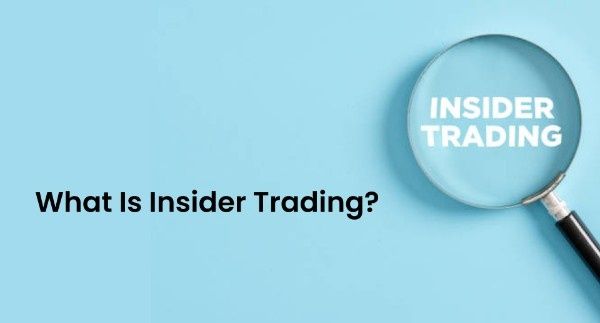Options trading is usually a source of curiosity to any person who is interested in the stock market. The concept of managing a lot of stock with a smaller investment is rather thrilling; at the same time, it also brings certain questions. The question that many beginners would want to know initially is: Can I trade options without a lot of cash, or can I do it with a small amount of cash?
It’s a valid concern. Finance is, after all, known to be a preserve of the deep-pocketed and insider knowledge. In particular, options are frequently depicted as complex instruments of hedge funds and professional traders. However, in the real world, even ordinary investors have a chance to access options; you just need to know how it works, the risks, and how you can go about options.
The costs, strategies, and mindset required to do it, we will break down in this article, to help you understand whether a small beginning is possible and viable in options trading.
Learning the Basics of the Options
The thing is that one should be acquainted with the definition of an option before plunging into the costs. An option is a contract at its level best. It provides you with the right, but not the obligation, to either buy or sell a stock at a given price during a given period.
- Call options allow you to purchase a stock at a predetermined price.
- Put options are options that allow you to sell a stock at a certain price.
The options contracts are usually symbolic of 100 shares of the underlying stock. It is at this point that individuals start asking themselves: Since 100 shares of a corporation will cost me thousands of dollars, do I need a bunch of cash to trade options?” This depends on your method of trading them, and hence costs.
How Much Does It Really Cost?
Options give you the freedom to manage those 100 shares even at a fraction of that cost, unlike purchasing shares. You do not actually pay the entire price of the stock but only the “premium”- the price of the option. Premiums differ according to the price of the stock, the proximity of the option to profitability, and the remaining time to expire.
In the case of certain stocks, this premium may be as low as $50 or $100 per contract. With higher-priced stocks, premiums may simply hit thousands easily. The good news is that you do not always have to have a big bankroll in order to begin to play around with options.
With that said, when you start trading more complicated strategies, such as options selling (when you gain obligations), you might be required to have a higher account balance to fulfill margin requirements. In such situations, brokers can request between $2,000 and $25,000 or above. However, in the case of simple trading strategies such as purchasing calls or puts, entry barriers can be significantly weakened.
Starting Small with Options
Novice traders often believe that they need tens of thousands of dollars in order to start trading options, and it is not necessarily so. You can go small when you are wary and careful. Indicatively, say you locate an option contract that is priced at $75; that is the maximum you will lose in case of a bad trade. This is quite a minor expense compared to the cost of purchasing 100 shares of stock, which may require a number of thousands of dollars.
It is also a smaller investment that provides an opportunity to learn. You may observe the behaviour of options, the influence of time on value, and the fluctuations of prices with the stock–without risking your life savings. This appeal to many is the possibility of having experience with a small initial risk in options trading.
The Role of Strategy
Naturally, you can start small, of course, but that will depend on your strategy, as well as the cost. Certain ones are capital-based, whereas others are cost-effective.
Buying calls or puts:
It is the most basic and cheapest method of trading options. You are just paying the premium, and your risk is limited to that.
Spreads:
This is the commodity of acquiring and selling options jointly to minimize the risk. Although the cost can be reduced with the use of spreads, more attention to detail has to be paid.
Selling naked options:
In this case, it may need a lot of capital as the losses can also be relatively high. These trades usually demand huge account balances from brokers.
When one is starting up, it is usually a good idea to concentrate on the strategies that would limit the risk and also reduce expenses.
Psychology of Starting Small
Though the figures indicate that you do not always have to be rich, what matters is perhaps your state of mind. Options can move quickly. The same contract today of value 100 dollars will fall to 10 dollars tomorrow, or increase to 200 dollars. This is one of the reasons why options are exciting, yet it is what makes options risky.
By starting small, you have the space to learn without too much pressure. When you only invest small sums, you will not be as susceptible to making emotional decisions because of being scared of losing it all. You also get to build confidence over time, which is equally valuable as financial capital in the long run.
Do I require a lot of Cash in trade for options?
Now, back to the question that was initially put there: do I require a pile of cash in order to trade options? The response is: not always. In case you are merely planning to purchase simple calls and puts, you do not have to spend that much money; sometimes, a few hundred dollars will suffice.
However, when your ambitions are more sophisticated measures, such as selling options or constructing complicated spreads, then no, you will need even more capital. The critical bit is that you need to match your strategy to your budget. It is not only possible to start small, but sometimes it is even recommended, particularly when you are new at trading.
Read Also : Experts Reveal Where to Invest Money to Get Good Returns Safely
The Importance of Education
Whatever amount of money you have as a start-up, education is your most valuable investment. The power of options is great; however, it is also capable of compounding mistakes. To avoid the expensive mistakes, learning the fundamentals–how premiums operate, the meaning of expiration dates, the influence of volatility on pricing, etc.–can help you.
Resources are abundant, whether they be free tutorials on the Internet or formal classes. There are even some brokerages that provide simulated trading accounts, which allow you to play around with virtual money before putting real money at stake.
Risk Management
The other aspect of small trading is risk management. You do not want to gamble it all on a single trade, even when you just have 500 dollars in your account. It is a general rule to put at stake a low percentage of your account on any one position. In this manner, a poor trade will not put you out of pocket.
It is also prudent to ensure there are good exit strategies. Through pre-determination, decide when you will cut off losses and when you will get profits. These rules will guide you not to fall into the trap of emotional trading, as can be seen with beginners.
Small beginnings to Grow Long
The best thing about choices is that you do not need to jump into them with both feet. It is possible to start on a small scale, learn along the way, and increase. This is the path many veteran traders began, experimented with a handful of contracts, and slowly gained confidence, ability, and capital.
In months and years, with consistency, you can start to trade bigger and can also experiment with some more sophisticated strategies. That growth can be achieved since you have begun small, control risk, and do not regard trading as a lottery ticket, but develop skills.
Final Thoughts
Therefore, Do I need a bunch of cash to trade options or can I begin small? The obvious response is that it does not take a significant sum in order to start. Even with a small amount of money, say a few hundred dollars, you will be able to see what you can achieve with simple strategies, acquire some experience, and understand how the options can be a part of the investment process.
Options trading is not to be hurried into, though. It is all about education, patience, and risk management. The better you know, the better you can develop–even when you are beginning with small sums.
To know more about financial strategies and opportunities in terms of investments, you can refer to various resources, such as FJPInternational.com, which can help you make smarter decisions.





